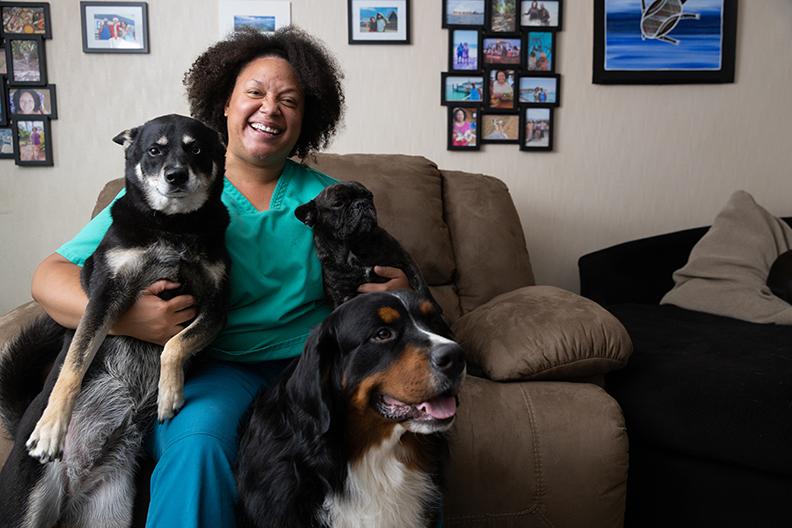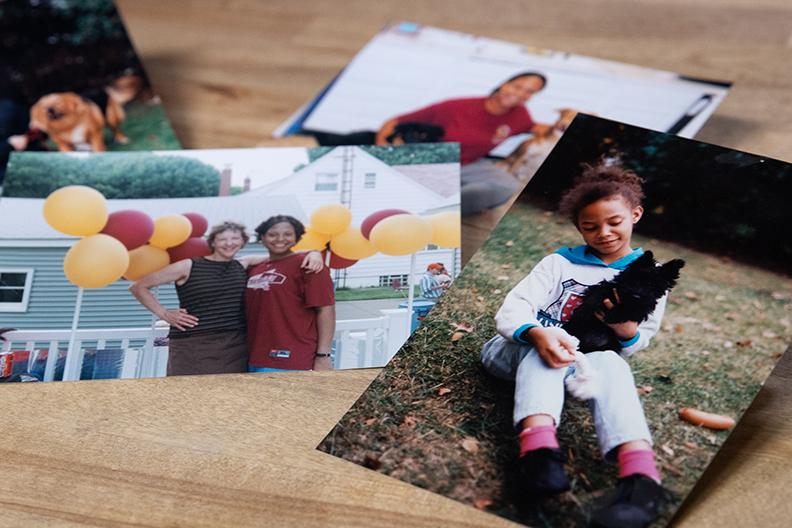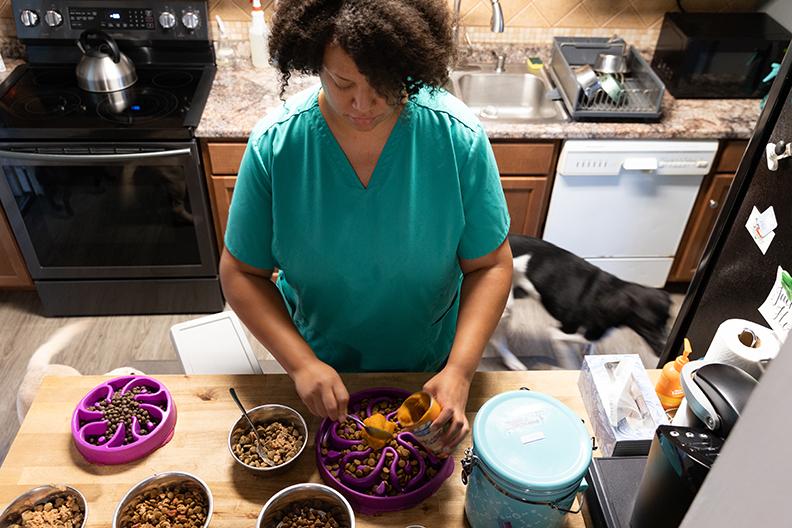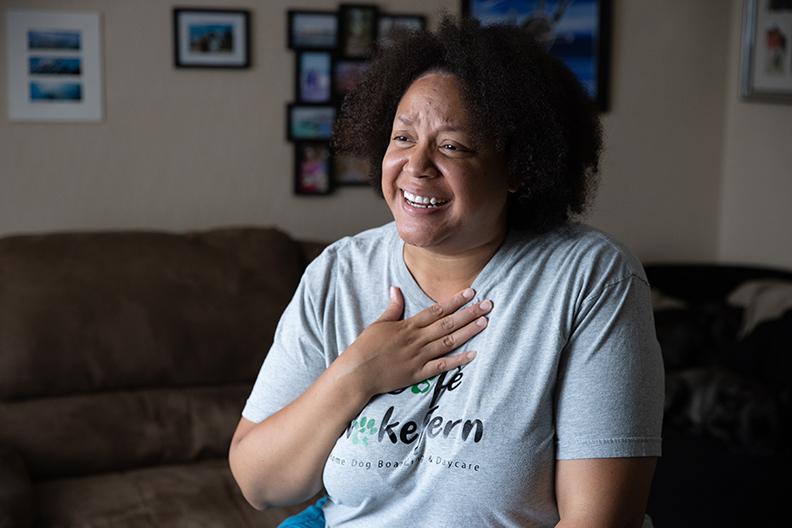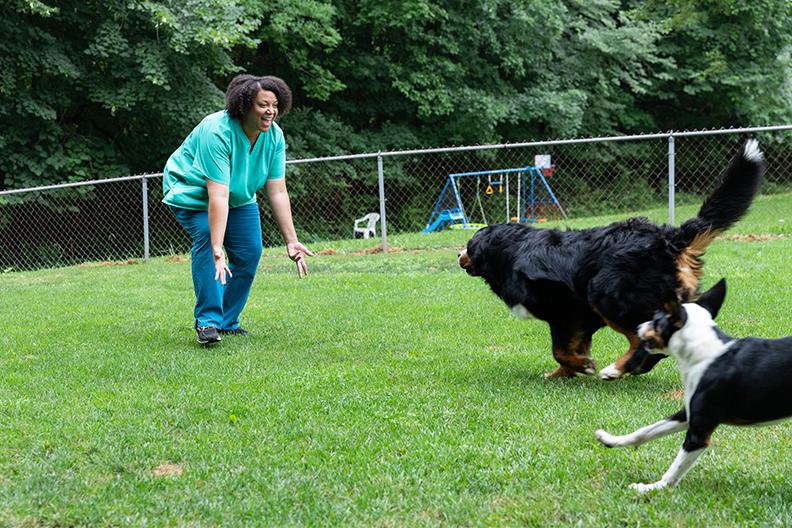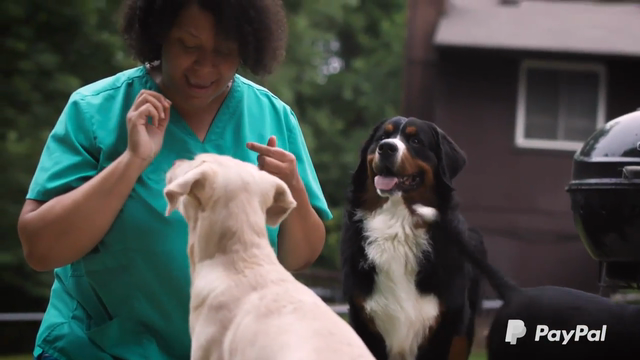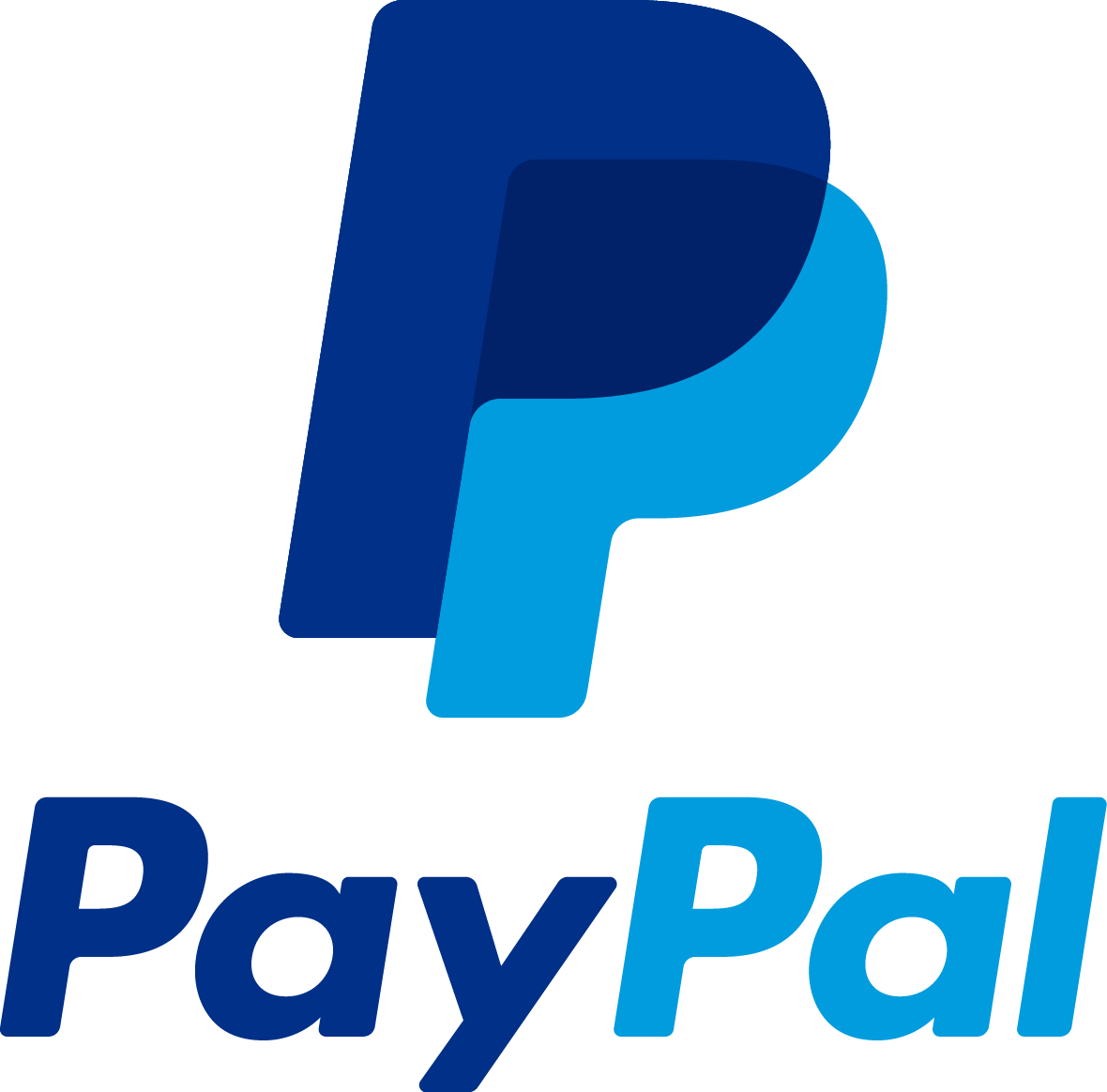How a Dog Daycare Owner Is Getting Back on Her Feet With a PayPal Empowerment Grant
Bridgett Jeffries has dedicated her life to caring for other people’s furry family members as if they were her own. The longtime animal shelter volunteer and proud parent to three dogs took a leap of faith in 2017 when she left her corporate job to open Café Wakefern, a dog daycare and boarding business, in Columbus, Ohio. She named her business after a café to evoke a “cozy, communal” coffee-shop feel, indicative of the safe and welcoming environment she creates for her canine customers. From careful pack management to providing healthy treats, she ensures all the pups under her watch have proper care and attention. She also sends her human customers a minimum of 30 photos or videos each day of their pups.
It’s an evolution of the care Bridgett has provided since she first started dog sitting for her neighbors at age 9, giving her an early sense of empowerment because “somebody that I loved trusted me enough in the care of something that they loved,” she explains now. She returned to her passion years later when launching her business, welcoming canine customers of all sizes and breeds into her home – though only after the dogs’ human parents complete a 40-question questionnaire that enables Bridgett to maintain the best environment for the pups.
For three years, every day was a paw party at Bridgett’s house, where her work was truly a labor of love. Many of her canine customers suffered from high separation anxiety, were post-surgical, or geriatric – if not all of the above. She successfully built her base of regular customers, but the recent economic repercussions of COVID-19 have been unrelenting. Bridgett saw cancellations increase as people stopped traveling or began working from home due to shelter-in-place orders. Early science on whether COVID-19 could be passed from humans to dogs was also unclear (The Centers for Disease Control and Prevention and World Health Organization have since agreed the risk of animals spreading the virus to humans is considered to be low). So, out of an abundance of caution, Bridgett made the difficult decision to close her business from March 15 to May 4.
“I was scared. I didn't want to lose my business,” Bridgett recently recalled from her Columbus home office as canine clients playfully darted between her legs. “I didn't know what I was going to do about my bills. I didn't know what I was going to do about anything. It was a very frantic, scary moment,” she said.
Though pet adoptions increased during the early months of the COVID-19 pandemic, pet care businesses have yet to see the benefit. A recent study by the American Pet Products Association examining pet ownership and related spending in the U.S. amid COVID-19 found that 75% of pet owners had changed their use of pet services, such as boarding, full-service groomers, and in-retail groomers, as a result of the pandemic. What’s more, 46% of pet owners reported that they were socially distancing their pets from other people and animals.
Being shut down for even a few days can threaten small businesses and their owners – who Bridgett noted “don’t get sick time or paid vacation” – never mind being closed for almost two months. With her business closed, she not only worried about how to pay her mortgage and other bills, but also about the health of her at-risk mother.
“You don't know what's next,” she said. There’s “almost no way to psychologically prioritize what to stress out about more…it's this constant barrage of the ‘what if?’ It's really frustrating because I can't anticipate what's coming down the pipeline. COVID-19, as a small business owner, was cataclysmic.”
In June, while scrolling on social media, Bridgett spotted a post about PayPal’s Empowerment Grants for Black Businesses and applied on the spot. (The $10 million grant program, in partnership with the Association for Enterprise Opportunity, has since paused accepting new applications due to an overwhelming response).
It was “one of the easiest, most straightforward applications of my life,” Bridgett said. And it wasn’t long before she learned that she had been selected for the program and would receive the maximum grant amount of $10,000. “It was almost like the world stopped [and] time froze,” she said. “I ran outside, I called my mother and we screamed and jumped up and down on the phone.”
Bridgett estimates the grant will keep her business’ doors open for a few extra months and combat the many financial impacts of COVID-19, which continue today. Despite reopening in May, her revenue remains down because many pet parents are still working from home. She has also capped the number of dogs she accepts each day to minimize customer interactions and potential exposure to the virus.
Most of all, Bridgett said, the grant has given her hope and helped her feel seen. She said it was like someone finally recognized her and said, “‘There is a Black businesswoman that is doing her best, that is trying and that is struggling, we see her… and we are going to help her.’”
“Being seen, when you're just one in how many million, that's just out in the mud, in the middle of a pandemic, is really huge,” she added. “You can't really put a word to it.”
Keeping her business alive is about much more than making a living. She hopes the tenacity and resilience she has shown during the pandemic can help inspire and motivate others to achieve and conquer similar challenges. That includes her two 11-year-old twin nieces, Micah and Maddie.
“As Black, young females, I want them to have a positive example that they can look up to” as a reflection of themselves that tells them “you can work for yourself, you can work with something or someone that makes you happy, you can survive the worst of it,” Bridgett shared.

